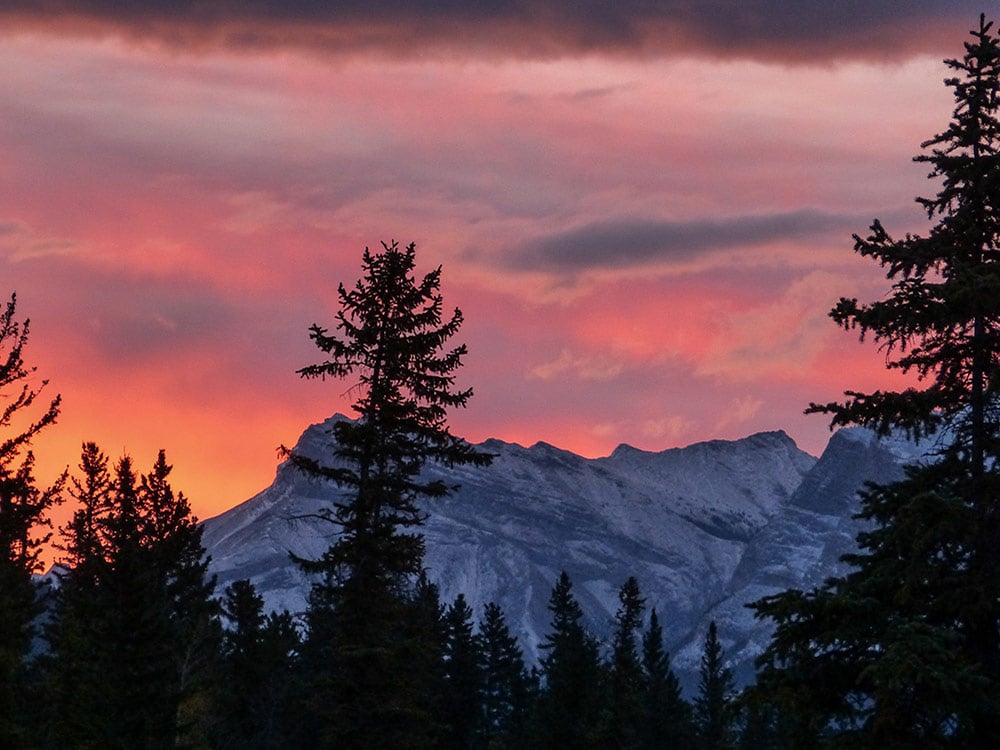When the character Emily Grace, the feminist coroner on the popular Canadian series Murdoch Mysteries, moved from Toronto to London, England, to join the robust suffragette movement there, I noticed.
Clearly the actress who played Grace needed to leave the show, for whatever reason. But this creative decision always felt weird to me. Why couldn’t she help the suffragette movement in Toronto, even if it was small? Should we always be aiming for bigger cities, bigger things?
I have similar complicated feelings about my life in Alberta. Ever since I was young, I wanted to be creative, whether as an artist, filmmaker or fashion designer — whatever shape it took. But I’d never thought of Edmonton, where I live, as a cultural hub like Vancouver and Toronto. I’ve often felt that the few creative career options here are out of reach.
But does that mean I need to leave? Is moving out the only way to find yourself and success?
Growing up in Alberta, especially with immigrant parents and ambitious dreams, one thing was always clear: this place was supposed to be temporary.
Many working-class immigrants move to Alberta for employment, but much of the work they get here can be unstable, physically demanding and abusive. As a child of an immigrant, watching their struggles and career prospects, I always felt encouraged by my parents to aim for better than what they had.
More generally, Albertans are often raised to gather what we can — money, education, experience — and make a mad dash to what we see as more illustrious provinces like British Columbia or Ontario.
Our governments rarely invest in our communities, as evident through their inadequate responses to the housing crisis, a lack of mental health services, and major cuts to health care and education, so why should we? Without a good quality of life, Alberta is just a stop on the way to something better.
Indeed, many Albertans are fleeing. More than 2,700 Albertans migrated to other provinces between April and June 2020 because of economic hardships. Headlines like “Young educated Albertans are fleeing the province” noted the exodus. A Tyee story from last January described the drain of trained professionals, families and businesses from this province.
And of course, there are the vulnerable Albertans who cross their breaking point and feel the same compulsion to move but know hardships will exist no matter where they go. People who feel stuck, trapped even. People like me.
But I’m not giving up on this place. At least not yet.
It’s not that Alberta has been good or hospitable to me. And it’s not like I haven’t noticed how much this province has declined under the Jason Kenney-led United Conservative Party, whether in terms of the cratering economy or in feeling safe from the hostile alt-right. But I’d rather pour my energy into making Alberta a better place.
There’s this hope that once we leave Alberta, the issues that plague the province will not be our problem anymore.
But many of these issues transcend borders. And vulnerable Albertans — refugees, Indigenous peoples and houseless individuals — who can’t pack up and leave are often stuck to deal with them.
For example, in the ongoing fight against climate change, Kenney’s tax breaks for oil and gas companies and other pro-industry policies are fuelling a crisis that impacts all of us. Indigenous people and refugees bear the brunt of these consequences.
The oilsands cover over half of the Mikisew Cree First Nation’s traditional territories, and these developments have hindered their ability to live off their land. Oilsands have destroyed freshwater streams in the area and have contaminated the animals they used to hunt.
There’s also the increased risk of cancer and respiratory and neurological diseases that short-term exposure to diluted bitumen poses for Indigenous peoples in northern Alberta.
Many refugees who’ve been displaced by imperialism and climate change come here and struggle to obtain employment, housing and basic necessities, resulting in them being herded into low-paying, back-breaking jobs. On top of that, they’re also more likely to suffer from racial, xenophobic and gendered violence from settlers.
My best friend once painted a bleak picture. “Everyone I know is here against their will, can’t move, can’t leave.” Some people can’t return to their home country due to political conflicts, economic crises or climate disasters, or they can’t move anywhere else due to personal finances.
In our conversations about being in diaspora, she often talks about the feeling of community in Lebanon where her family originated. “We were raised as a community, and in the West, they’re raised as independents,” she says.
Even though we were both born and raised in Edmonton, the by-your-bootstraps narrative that reigns in Alberta has always grated on us. “Just work hard so you don’t have to rely on anyone,” folks say.
But we’ve always relied on other humans to survive.
And that need to lean on each other and rely on community is stronger than ever, especially with the well-documented rise of far-right extremism and white supremacy in Alberta.
Hatred feels more palpable, particularly in the form of Islamophobia. Hate crimes in cities like Calgary and Edmonton have gradually increased (and that’s just what’s reported).
Kenney’s government has been criticized for its lack of response in dealing with racism and, more importantly, promoting hatred through words of their own, or through discriminatory policies that prey on marginalized communities.
And don’t forget the botching of Alberta’s response to COVID-19, which likely affects vulnerable groups disproportionately.
I’ve always felt that I’ll never find happiness in Alberta, but could never quite figure out why, at least not consciously. Now I know part of the reason is racism.
But I think another part has to do with being part of this violent settler-colonial project we call Canada. According to Lorenzo Veracini’s The Settler Colonial Present, settler colonialism is “a distinct type of colonialism that functions through the replacement of Indigenous populations with an invasive settler society that, over time, develops a distinctive identity and sovereignty.”
Indigenous people have been dispossessed and oppressed to make way for settlers. These settlers, including racialized ones, often arrive, do what they want, and then leave — shifting their burdens and problems to Indigenous peoples on that land. Indigenous communities are then forced to fight for change on their own, amidst a racist system and challenging our capitalistic ideas about land and identity.
I know that even though some cities have bigger marginalized communities and feel safer, the idea that some cities in Canada are “more progressive” than others is a myth, a pervasive one. In actuality, it’s false security: Canada is built on the foundation of white supremacy.
Sometimes, people move to a different place, and that’s life. But that shouldn’t stop us from taking care of the people (and the land) wherever we are.
We are told from a young age to follow the money or to follow our dreams, but I think we should build community instead. We, settlers, take from the land, use it up and then move onto the next place, but what if instead we shared and supported the people around us?
Alberta is my home, it made me the person who I am today, but that’s only because of the people who live here. People are what makes thriving societies; they’re also what keeps you going when life gets tough.
Despite the rise in hate in Alberta, more and more activists seem to be engaging in mutual aid — a form of political participation where people provide resources for mutual benefit — and mediating the harmful effects of conservative politics.
And there are so many groups and individuals who’ve chosen to stay and push for a better Alberta.
The Prairie Sage Protectors, a group of volunteers and members of the former Camp Pekiwewin prayer and relief camp, and the Wild Rose Socialist League — started by one of my friends — are just two groups combating the pro-capitalist ideology of this province’s government officials.
The Niitsítapi Water Protectors are protesting coal mines. Anakbayan Alberta is a group of Filipino youths who organize for Filipino rights.
Activists like these keep our communities safe, but we can’t leave it just to them. We all need to work together to push for a better tomorrow.
I have watched others create solidarity-based supports when governments won’t. I’ve seen people take care of each other when governments refuse to act. And I take my comfort in knowing that capitalistic drive doesn’t rule all people.
I don’t know where life will take me. But I do hope that if I ever leave Alberta, I leave it in a better shape than it was when I found it and continue fighting against oppression wherever I am. ![]()
Read more: Rights + Justice, Politics

















Tyee Commenting Guidelines
Comments that violate guidelines risk being deleted, and violations may result in a temporary or permanent user ban. Maintain the spirit of good conversation to stay in the discussion.
*Please note The Tyee is not a forum for spreading misinformation about COVID-19, denying its existence or minimizing its risk to public health.
Do:
Do not: